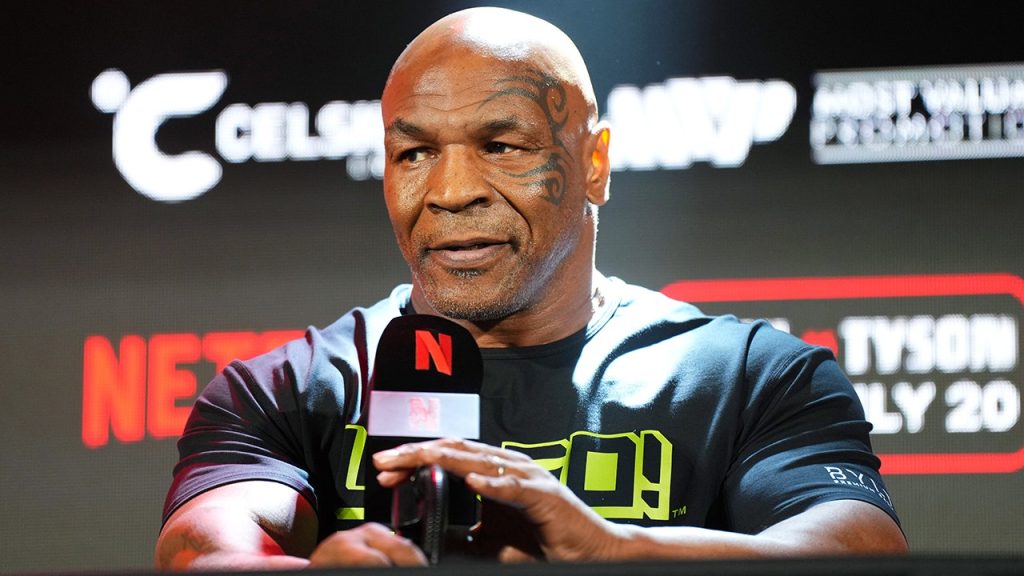Mike Tyson, the legendary boxer, finds himself embroiled in a legal battle following his highly publicized return to the ring against Jake Paul. A London-based company, Medier, has filed a lawsuit against Tyson and his company, Tyrannic, seeking over $1.5 million in damages for alleged breach of contract. The lawsuit stems from a promotional agreement signed in January between Medier, which promotes the betting company Rabona, and Tyson. Medier claims Tyson unjustly terminated the deal in March, citing a supposed breach by Medier, while asserting that the real reason for the termination was Tyson’s commitment to a Netflix-sponsored fight with Jake Paul. This legal tussle adds another layer of complexity to Tyson’s comeback narrative.
The crux of the dispute lies in the conflicting interpretations of the contractual obligations. Medier alleges that Tyson and Tyrannic used a fabricated breach of contract as a pretext to exit their agreement. The company maintains that it fulfilled its responsibilities under the contract, and that Tyson’s true motive for termination was his lucrative deal with Netflix to fight Jake Paul. This contention paints a picture of Tyson prioritizing the high-profile, financially rewarding Paul fight over his existing commitment to Medier, a decision that Medier argues constitutes a breach of contract. The lawsuit thus seeks to recover not only the fees paid to Tyson but also the significant production and promotion costs incurred by Medier in anticipation of the partnership.
Tyson’s legal team, however, offers a different perspective. They argue that it was Medier who breached the contract by failing to obtain Tyson’s approval for promotional materials. This suggests a breakdown in communication and a lack of adherence to agreed-upon procedures. Tyson’s lawyers maintain that Medier’s failure to secure his approval for the promotional content constituted a breach of contract, justifying Tyson’s subsequent termination of the agreement. This contrasting narrative highlights the stark difference in interpretations of the contractual obligations and the events leading to the termination.
The financial stakes of the lawsuit are substantial. Medier is seeking the return of over $800,000 in fees paid to Tyson for services allegedly not rendered. This amount represents a significant investment made by Medier in anticipation of leveraging Tyson’s image and brand for promotional purposes. Furthermore, Medier is also seeking compensation for nearly $730,000 in “wasted production and promotion costs.” These costs likely include expenses related to the development of marketing materials, advertising campaigns, and other promotional activities that were rendered futile by the termination of the agreement. The combined total of over $1.5 million underscores the significant financial impact of the alleged breach of contract on Medier.
While the lawsuit unfolds, it’s important to contextualize it within the broader narrative of Tyson’s comeback and the Paul fight. The fight against Paul, while a sanctioned bout affecting Tyson’s professional record, was primarily a spectacle designed to generate significant revenue. Reports indicate that Tyson received a staggering $20 million for the fight, dwarfing the amounts involved in the Medier lawsuit. This disparity in figures highlights the financial magnitude of the Paul fight and perhaps underscores Medier’s claim that Tyson prioritized the more lucrative opportunity. The fight itself drew a massive audience, with over 72,000 fans in attendance and over 108 million viewers streaming the event, solidifying its place as a major sporting event and potentially further fueling Medier’s argument about Tyson’s motivations.
The legal battle between Medier and Tyson unfolds against the backdrop of a highly publicized and financially successful fight. The lawsuit raises questions about contractual obligations, the prioritization of financial opportunities, and the complexities of managing brand partnerships in the world of professional sports and entertainment. As the case progresses, the court will need to determine whether Tyson’s termination of the agreement with Medier was justified or constituted a breach of contract. The outcome will have significant implications for both parties involved and could set a precedent for future disputes involving promotional agreements in the sports industry.


